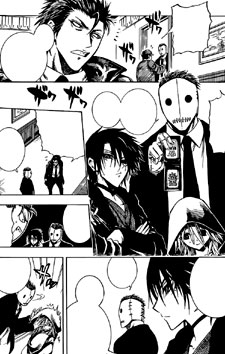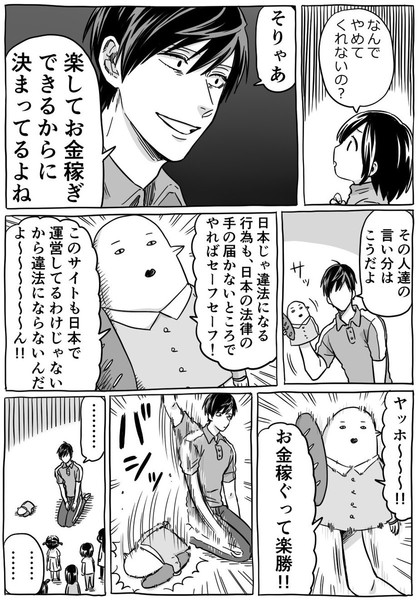

release, and can only be purchased at a brick and mortar store, then the pirate’s service is more valuable.”įor Valve, piracy is a “nonissue” because they provide a better service for their video games than most pirates do. For example, if a pirate offers a product anywhere in the world, 24 x 7, purchasable from the convenience of your personal computer, and the legal provider says the product is region-locked, will come to your country 3 months after the U.S. “Piracy is almost always a service problem and not a pricing problem. I feel like Gabe Newell, CEO of Valve put it best. However, I empathize with pirates, especially when they have no other alternative. I should clarify again that I don’t support piracy. And even worse than that, what happens when a fan lives in a country with limited or restricted publishing? The only way to read manga that way is illegally, by way of “scanlations,” fan scans and translations.
#Illegal manga websites series#
Even worse, some series like Beelzebub and The World God Only Knows have seen no plans for an English release. What happens when a series goes out of print? Many manga like Alive: the Final Evolution were only translated up to a certain volume before they were canceled altogether.

With omnibuses collecting entire volumes at a lower cost and affordable sales abound the Internet, it’s a great time to be an American fan of manga. In 2010 alone, Viz increased One Piece’s volume count from 22 to 53. The physical market is insanely better too, with outstandingly cheap used manga and a whole slew of lesser known titles published alongside the greats. Sites like Shonen Jump Alpha and Crunchyroll offer cheap subscription services to make old and new manga available. It’s become incredibly easy to read manga legally, at least here in the States. Now, things are obviously getting better. One Piece was one of the most popular manga back then so you can only imagine how some lesser known series were treated. Up to 2009, only 22 One Piece volumes out of nearly 50 at the time had been translated. And putting myself in that mindset back then, there was a significant amount of manga that simply wasn’t available. But what manga fan wasn’t pirating back then? I still own Mixx and Tokyopop volumes of series that are absolutely horrid in their translations. Like many issues in entertainment, I detest outright piracy when used as a means to exploit creative work and avoid payment.īut I have another confession to make about my obsession.īack in the early 2000’s, I pirated manga. I’m actually rather excited about this so called “Manga-Anime Guardians Project.” Any efforts to diminish piracy usually leads to interesting and informative discussions. The Japanese government’s Ministry of Economy, Trade and Industry is cracking down on illegal manga and anime distributing websites with hopes of revitalizing the industry.


 0 kommentar(er)
0 kommentar(er)
